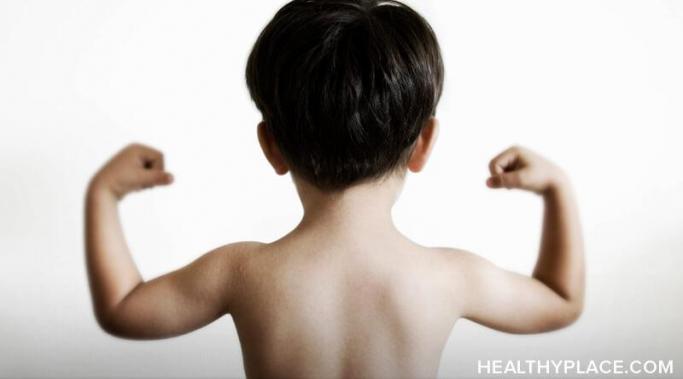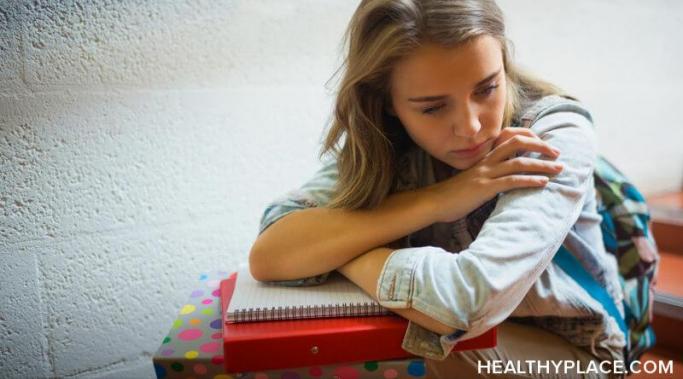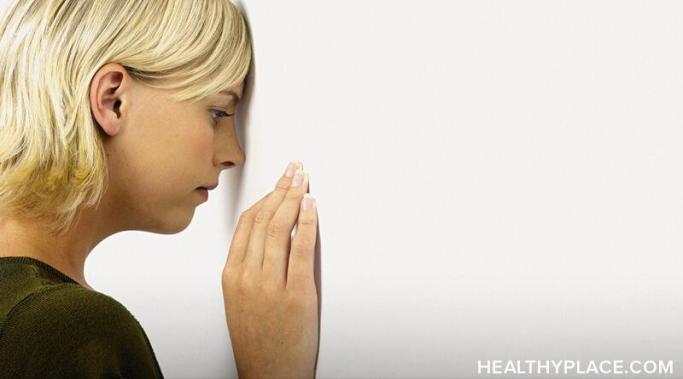Blogs
Do you know how to show concern and support for your friend's emotional wellbeing? It can be more difficult when your friend lives with mental illness. If your friend with depression has engaged in self-destructive behaviors in the past, you might think that he or she is currently not okay and needs help. To learn about how to respond to your friend's feelings and when to show concern, read this article.
Do you have anxiety goals? Could changing your perspective on anxiety help you to reach them more quickly?
I'm a huge supporter of ending the stigma surrounding all mental illnesses, which is why I support talking to your kids about eating disorder recovery. This said, as a mother of four children under nine years of age and someone who has been in recovery for a while now, there are two things I think everyone should consider before talking to their children.
An addiction to food is likely one of the most acceptable forms of addiction in our society, but does food addiction always imply the diagnosis of an eating disorder? Honestly, it depends on who you ask. In my experience, my dependencies and addiction with food inevitably morphed into an eating disorder, but that doesn't mean everyone with an eating disorder is a food addict.
Living with schizoaffective anxiety sometimes makes me afraid to do pretty much anything. So, I often do things even though I’m afraid because, if I didn’t do them, I couldn’t function. But since, as I’ve said, I’m anxious about doing so many things, I have to work up a lot of courage to accomplish tasks other people do without a second thought.
An anxiety journal is a powerful mental health tool. Keeping a journal can help you reduce anxiety and move forward freely into your quality life. Beyond that, an anxiety journal can empower you to know what that quality life will be like and how to create it.
I am currently using opposite action to save my social life. Learn how opposite action, a dialectical behavior therapy (DBT) skill, is helping me.
There is a vicious, rampant correlation between eating disorders and bullying—the epidemic is real, and children of all ages can be vulnerable to the mental and physical ramifications. In the United States alone, 65 percent of those with eating disorders have reported that incidents of bullying caused their behaviors to manifest, and 40 percent of children or adolescents are mocked by their peers for weight-related issues.1 This data, compiled by the National Eating Disorders Association (NEDA), also notes that when bullying occurs, a victimized person will often experience bouts of insecurity, poor self-esteem, body image distortion, and an urge to numb the painful emotions. So in order to protect children from these adverse effects, it's crucial to understand the epidemic scale of eating disorders and bullying.
My name is Kim Berkley, and I'm the new author of Speaking Out About Self-Injury. I’m looking forward to putting my writing skills to particularly good use here where I hope my words will bring some measure of comfort and clarity to those struggling with self-harm.
I've found hope is harmful. I know, the reflex is to disagree with this, but, at least in my case, hope is harmful. I recently found a bit of hope of ending a profound, debilitating depression. I knew feeling that hope was a mistake, but some part of my brain refused to listen to that. And sure enough, it turned out that hope was harmful.









